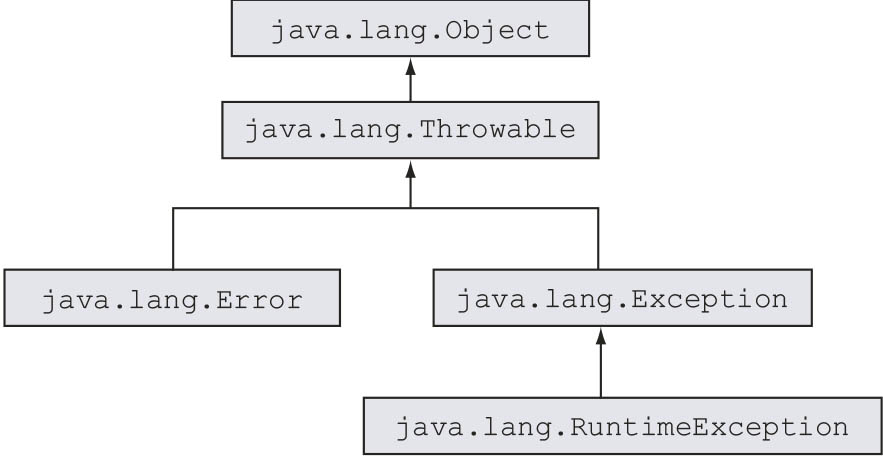Checked and Unchecked Exceptions in Java
In Java, checked exceptions are compile-time exceptions that must be explicitly handled using try-catch blocks or declared in the method signature with the `throws` keyword, ensuring developers address potential issues like `IOException` or `SQLException` before runtime. Unchecked exceptions, on the other hand, are runtime exceptions that extend `RuntimeException`, such as `NullPointerException` or `ArrayIndexOutOfBoundsException`, which do not require explicit handling and can propagate up the call stack unchecked. This distinction promotes robust error handling for anticipated failures while allowing flexibility for unexpected programming errors.
Understanding Exception Types
In Java, every error condition is represented by an Exception object. Exceptions are divided into two main categories based on how the compiler and runtime handle them:
- Checked exceptions - verified at compile time.
- Unchecked exceptions - verified only at runtime.

Checked Exceptions
Checked exceptions represent conditions that a well-written program should anticipate and handle. They occur due to external factors beyond the program’s immediate control-such as I/O operations or invalid file paths.
Key Characteristics
- Checked at compile time.
- Must be handled with
try/catchor declared usingthrows. - Subclasses of
Exceptionbut not ofRuntimeException.
public void readFile() throws IOException {
Files.readAllLines(Path.of("data.txt"));
}
Or handle the exception directly:
public void readFile() {
try {
Files.readAllLines(Path.of("data.txt"));
} catch (IOException e) {
System.err.println("File could not be read: " + e.getMessage());
}
}
Common Checked Exceptions
IOException– Input/output operation failure.SQLException– Database access error.ParseException– String parsing failure.ClassNotFoundException– Requested class cannot be located.InstantiationException– Attempt to instantiate abstract class or interface.InterruptedException– Thread interrupted during blocking operation.ReflectiveOperationException– Base type for reflection-related exceptions (Java 7+).
Unchecked Exceptions (Runtime Exceptions)
Unchecked exceptions signal programming errors, such as invalid logic or misuse of APIs. They extend RuntimeException and are not required to be declared or caught.
Key Characteristics
- Checked only at runtime.
- Not required to be declared in a
throwsclause. - Usually represent programming bugs or invalid assumptions.
public void processArray(int[] arr) {
try {
System.out.println(arr[5]); // May throw ArrayIndexOutOfBoundsException
} catch (ArrayIndexOutOfBoundsException e) {
System.err.println("Array index is invalid: " + e.getMessage());
}
}
Common Unchecked Exceptions
ArithmeticException– Arithmetic error such as divide by zero.ArrayIndexOutOfBoundsException– Invalid array index.ClassCastException– Invalid object type cast.IllegalArgumentException– Invalid argument passed to a method.IllegalStateException– Method invoked at inappropriate time.NullPointerException– Null reference access.NumberFormatException– Invalid string-to-number conversion.UnsupportedOperationException– Attempted operation not supported.
Deciding Between Checked and Unchecked Exceptions
Guideline: If the caller can reasonably recover from the problem, use a checked exception. If recovery is impossible or indicates a programming mistake, use an unchecked exception.
For example, a database connection failure should throw a checked exception since retrying or notifying the user is possible.
However, a NullPointerException or IllegalStateException usually indicates a logic flaw that should be corrected, not caught.
Hierarchy Summary
Java organizes exceptions under java.lang.Throwable:
Error- Indicates system-level issues beyond application control (e.g.,OutOfMemoryError).Exception- Application-level conditions.- Checked exceptions: Must be declared or handled.
- Unchecked exceptions: Runtime exceptions; can occur anywhere in code.
Best Practices
- Catch only exceptions you can meaningfully handle.
- Use
try-with-resourcesfor closing streams and database connections safely. - Avoid using exceptions for normal control flow.
- Prefer custom exception classes that clarify the nature of the failure.
- Iterate through collections using the enhanced
for-eachloop orIterator-avoid the legacyEnumerationinterface.
Understanding checked versus unchecked exceptions allows developers to write clearer, more reliable Java code. When applied correctly, exception handling improves program stability, promotes early error detection, and simplifies debugging-making this one of the most important foundational topics in object-oriented Java programming.